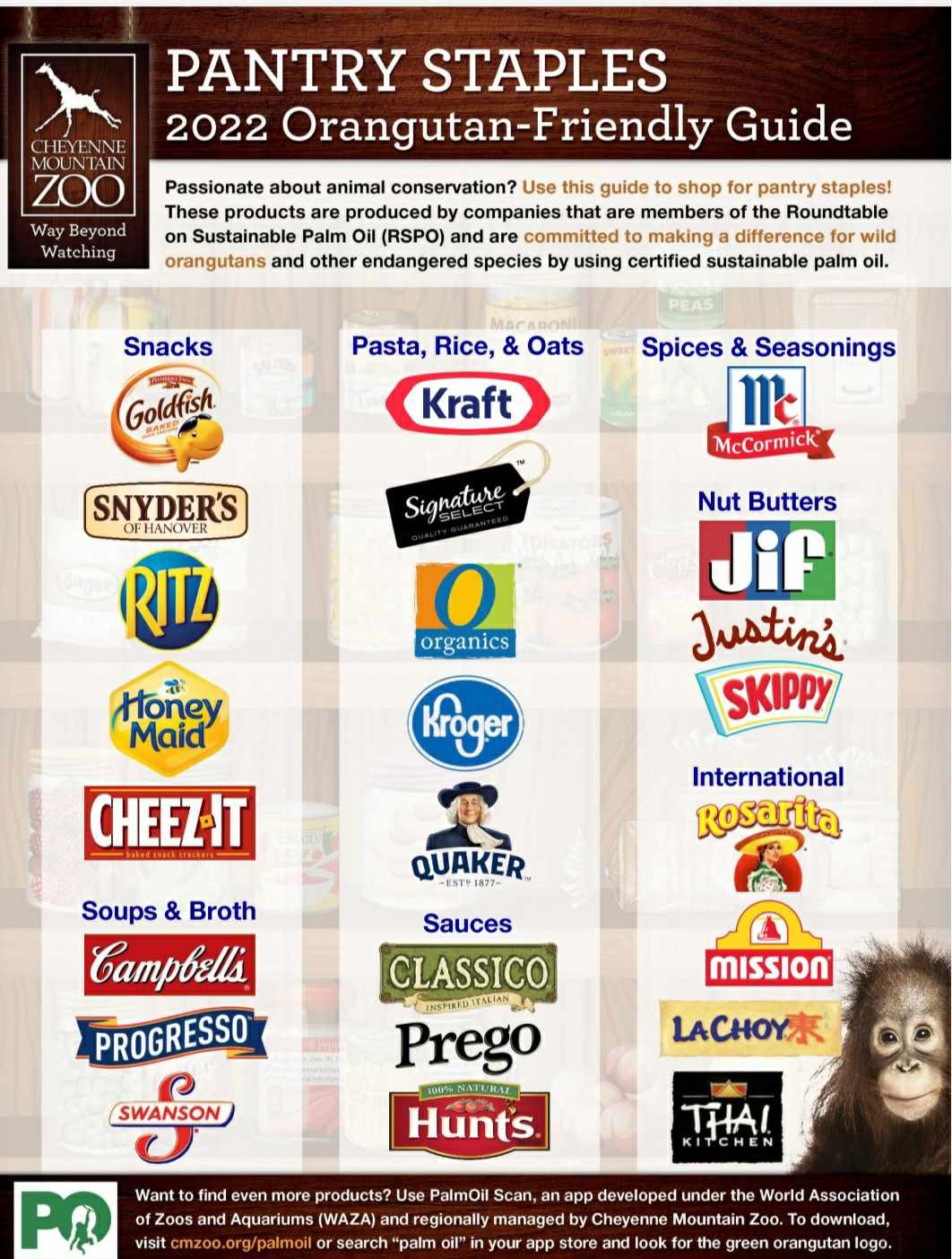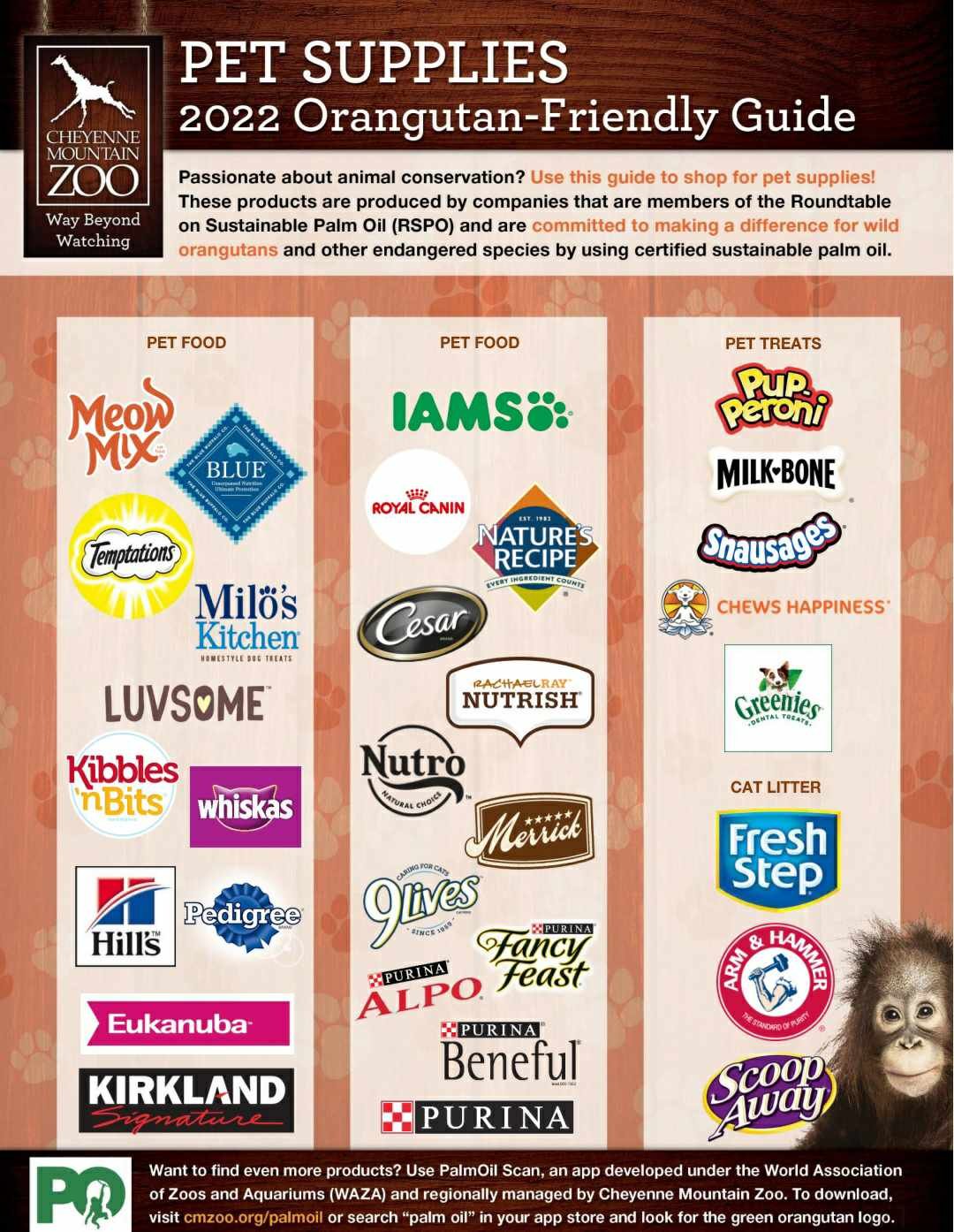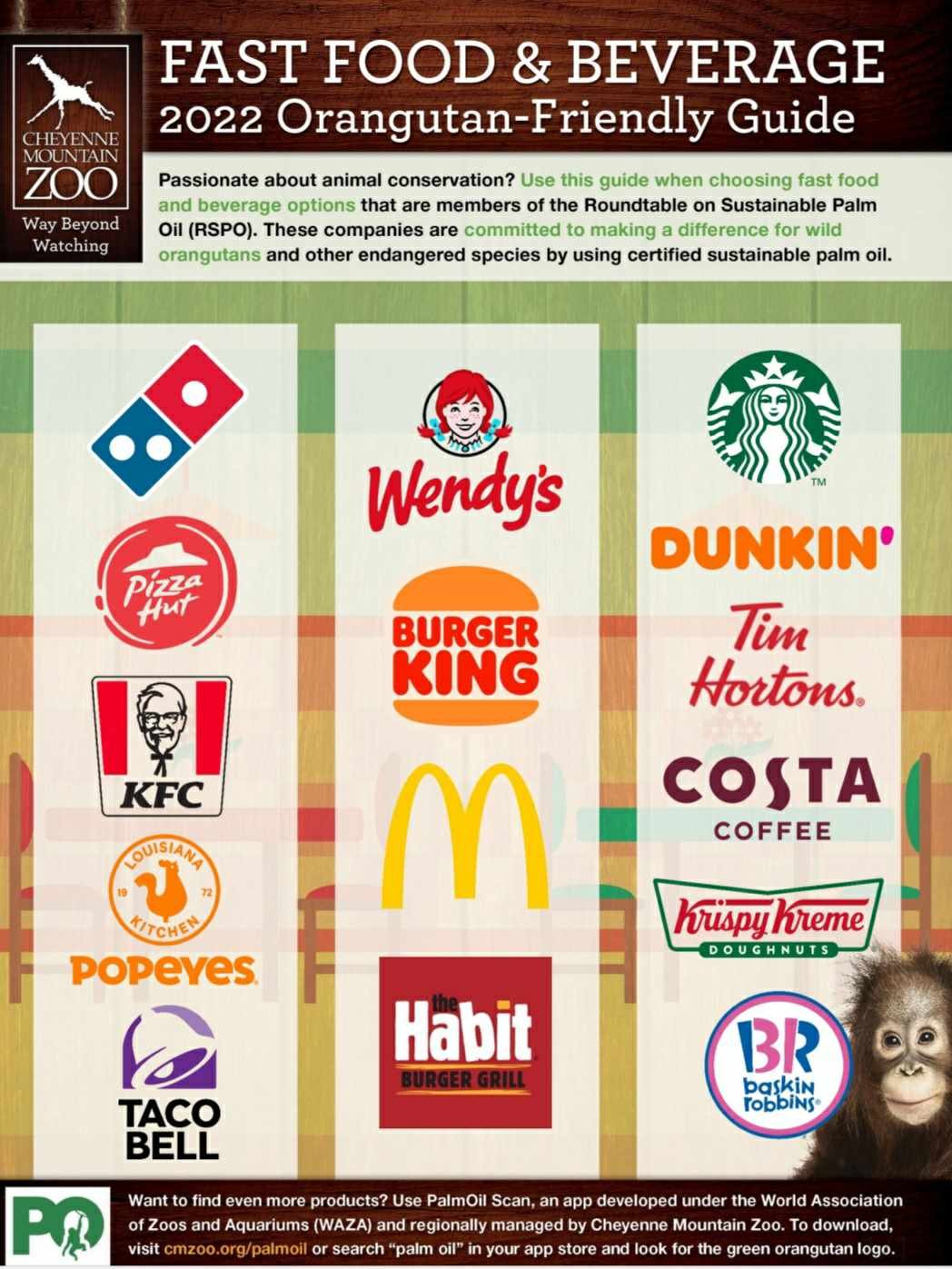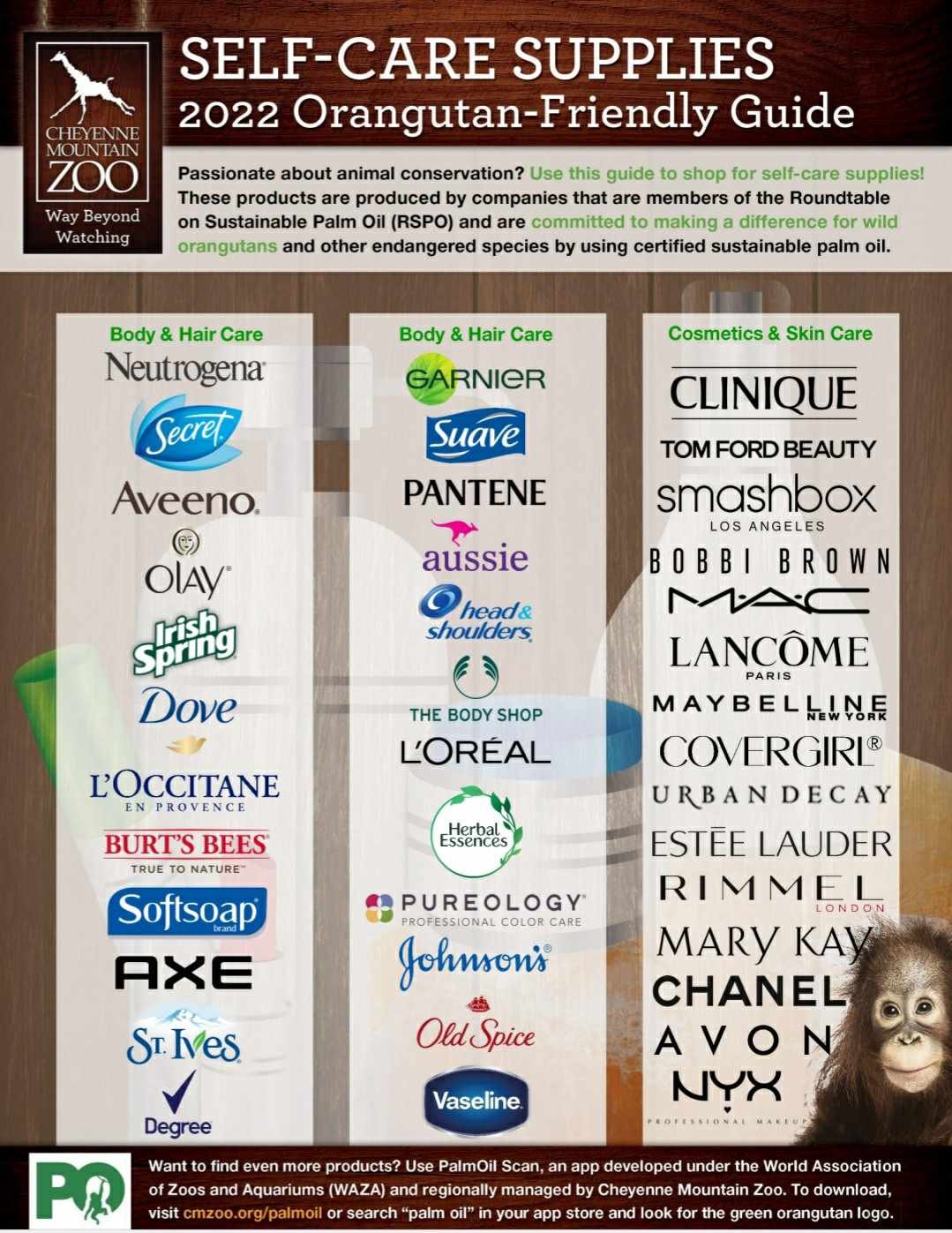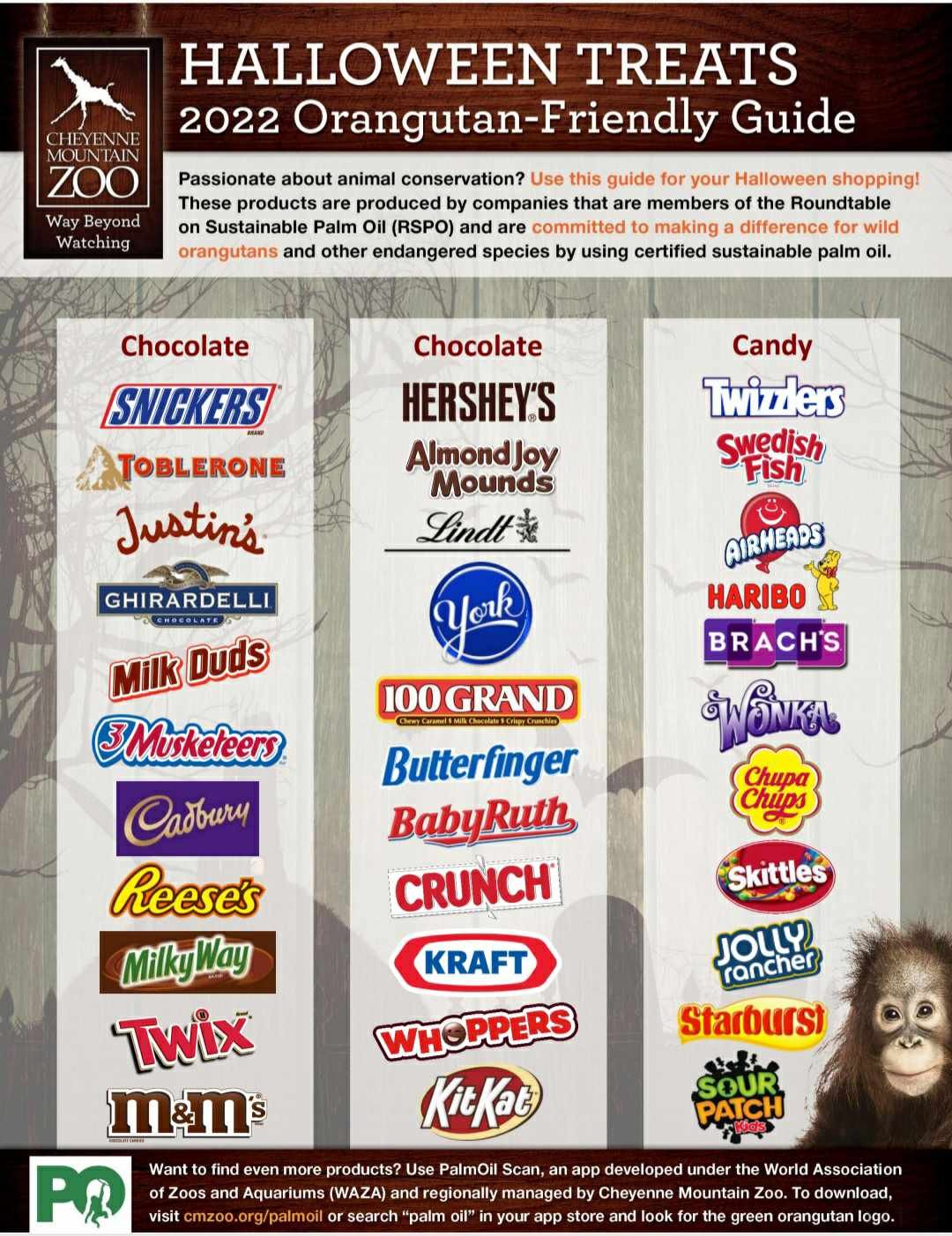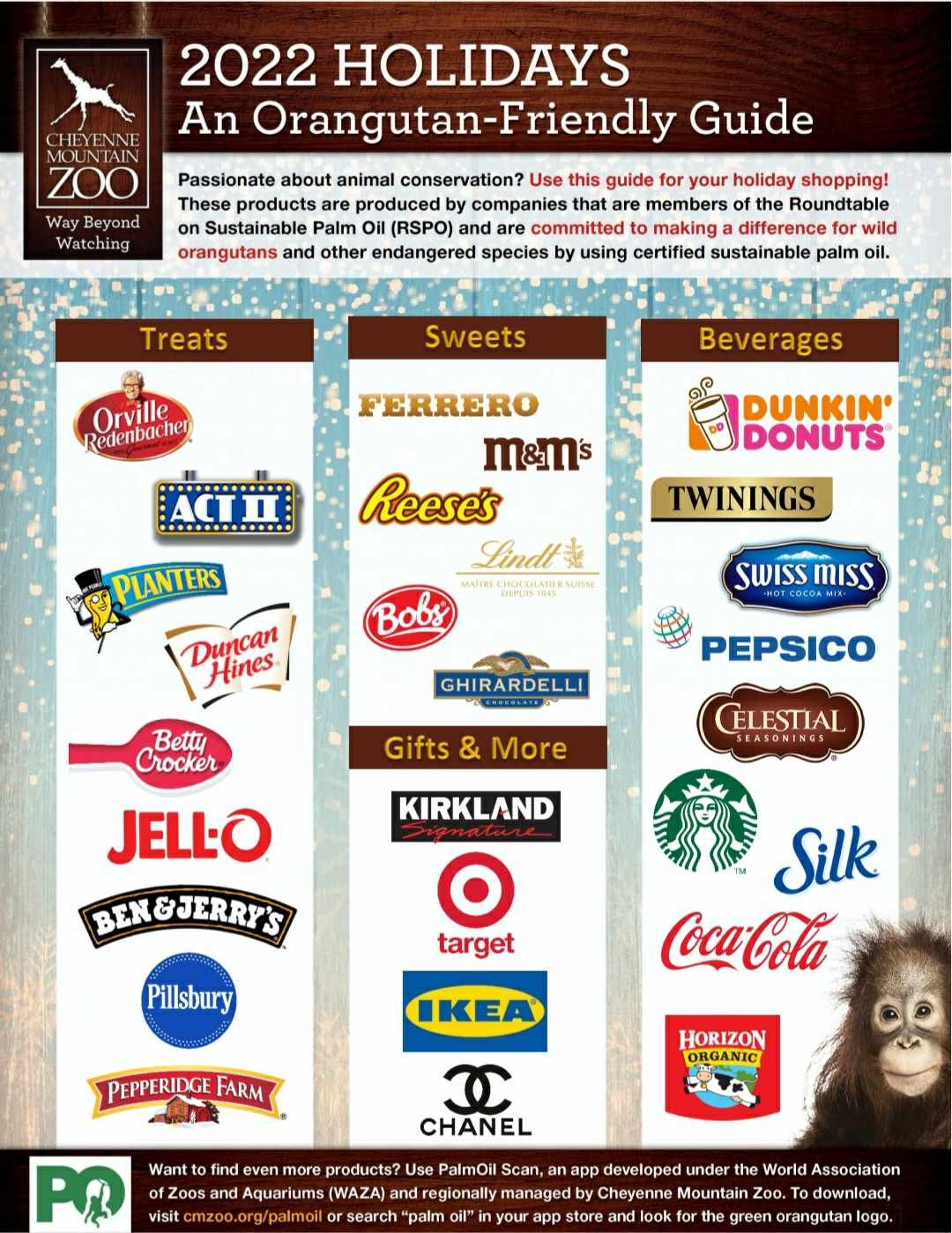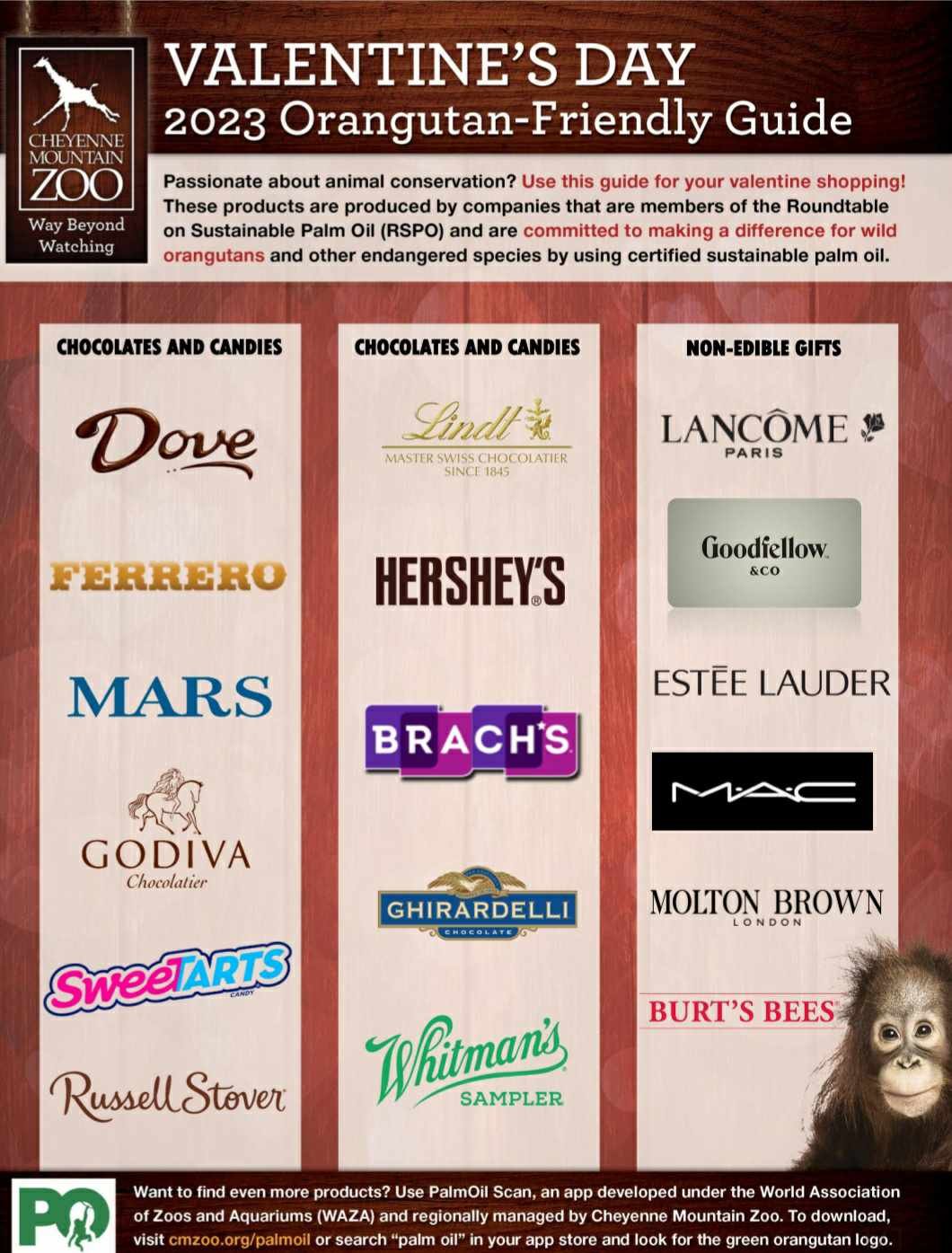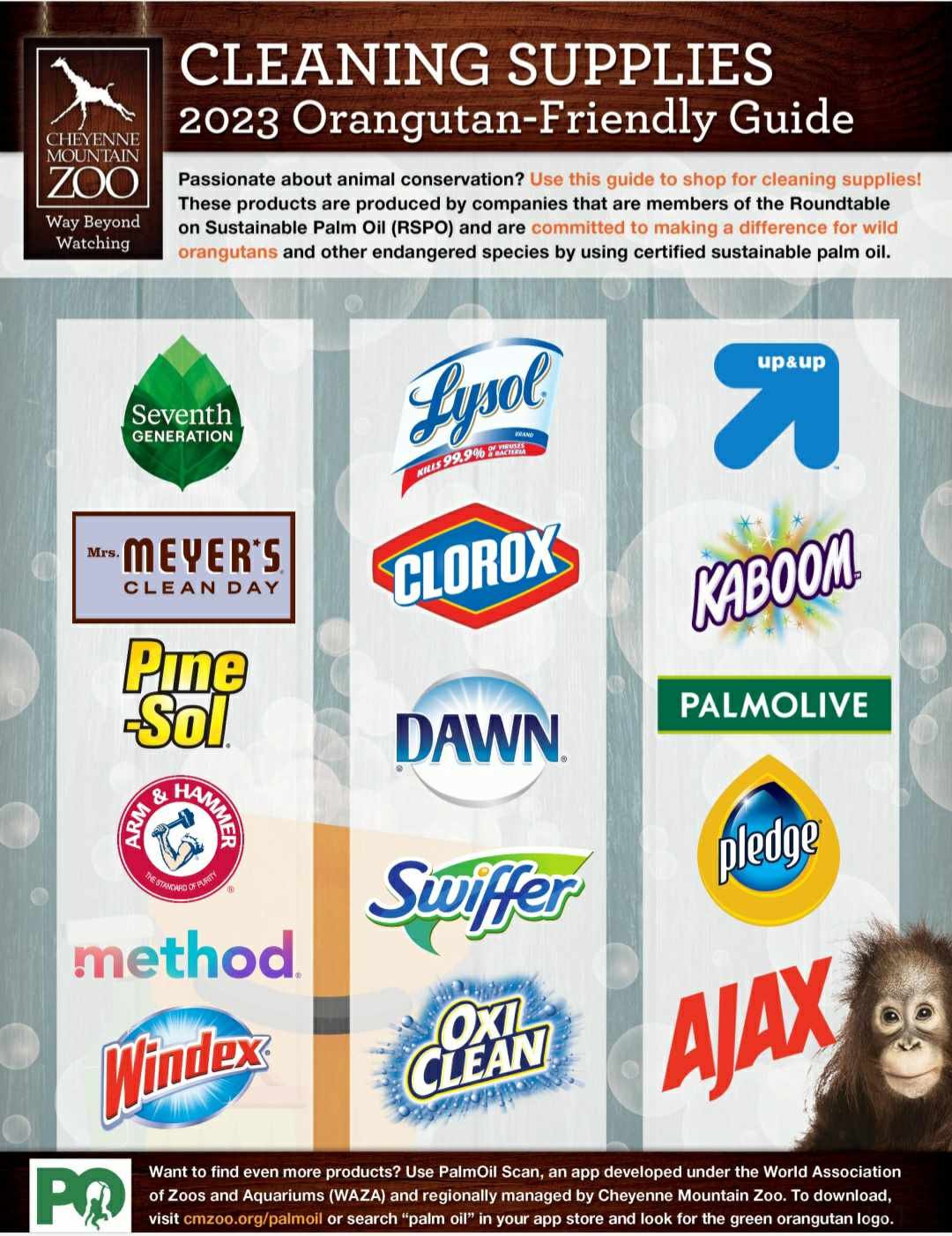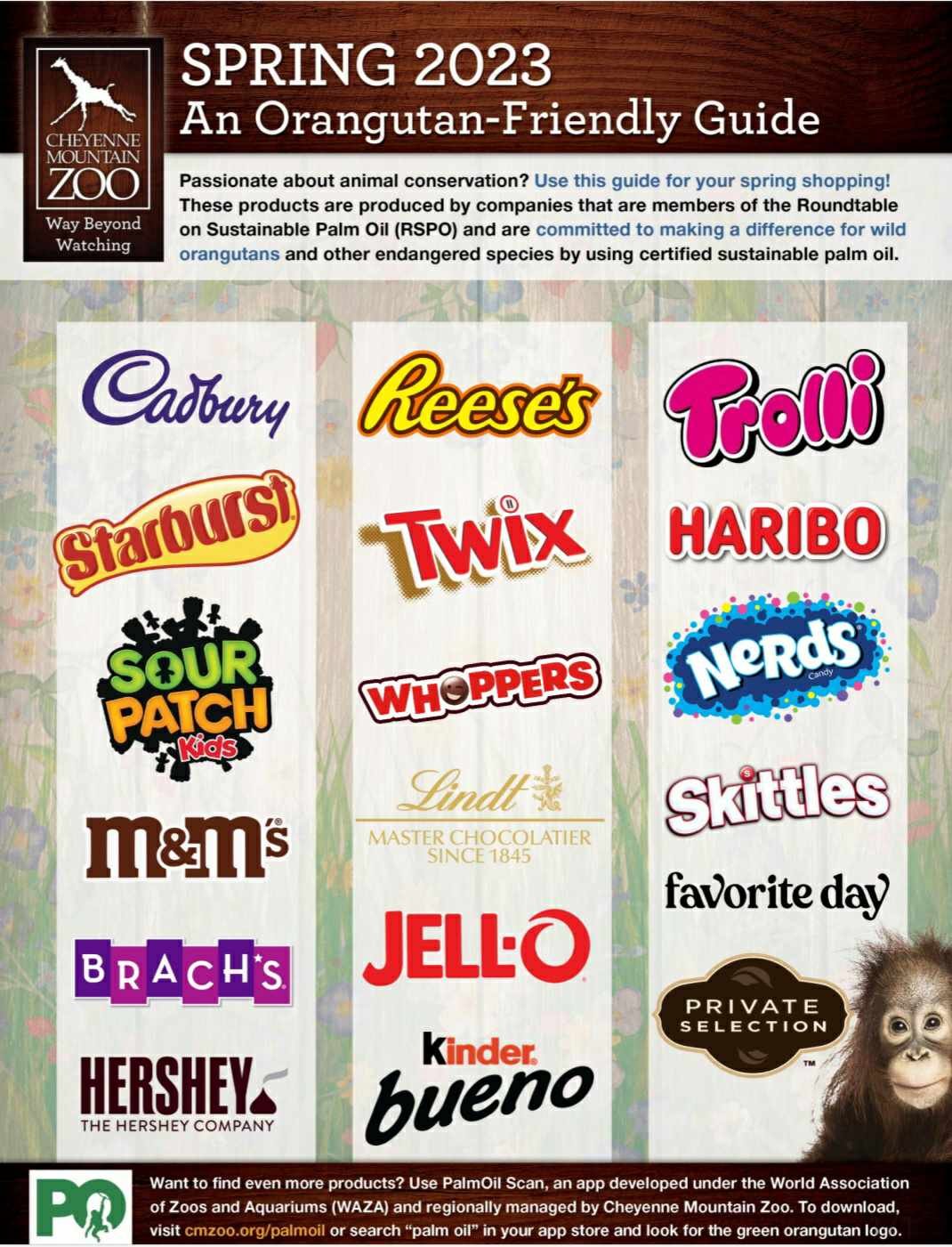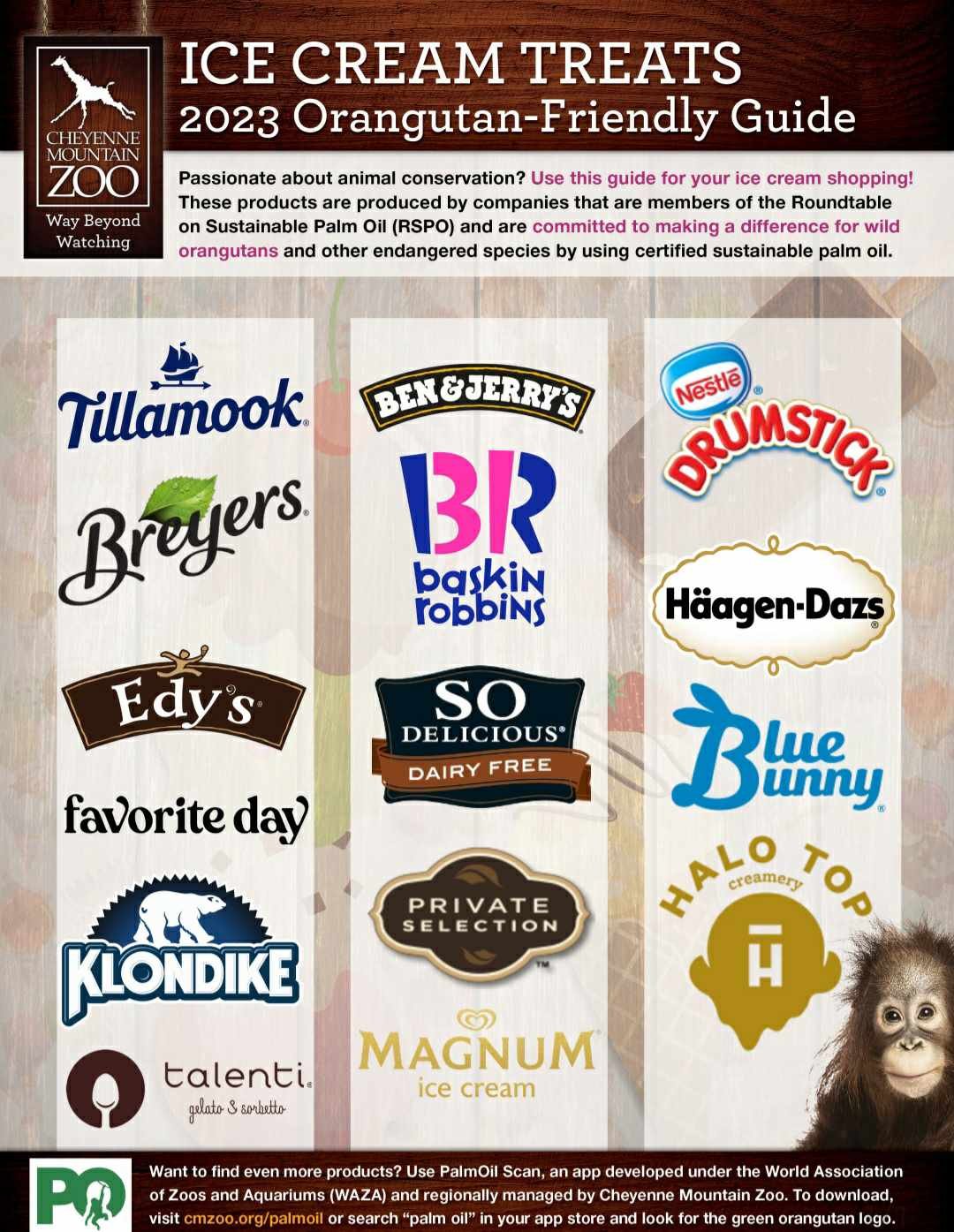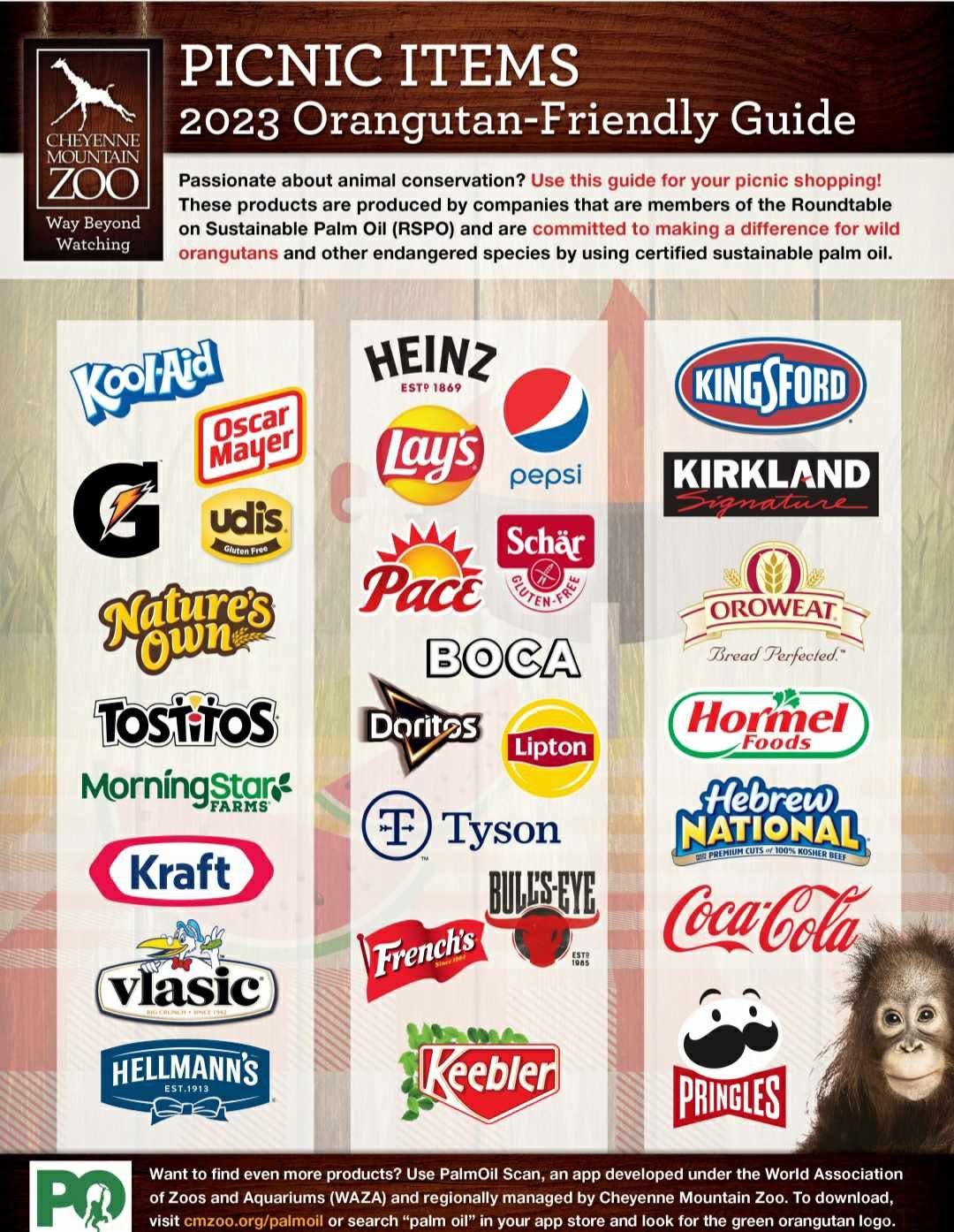Palm Oil Crisis
Content provided in part by Cheyenne Mountain Zoo
What is palm oil?
Palm oil is a form of edible vegetable oil obtained from the fruit of the African oil palm tree (Elaeis guineensis). It is inexpensive and efficient, making it the world’s most widely used vegetable oil.
African oil palms originated in West Africa, but can flourish wherever heat and rainfall are abundant. The majority of all palm oil is grown and produced in Borneo and Sumatra, although this crop is expanding into Africa and other equatorial areas such as Latin America.
You probably eat and use palm oil every day; it is found in about 50% of the products you can buy from the grocery store. It is found in many foods, cosmetics and bath products.
Demand for palm oil is rapidly increasing because of trans-fat health concerns and bio-fuel development.
Palm Oil Crisis 101 with Asian Elephant Support
What's the problem?
Supply and demand pressures are driving the production of palm oil up to an all-time high. Found in cookies, crackers, frozen dinners, shampoo, lotions, cosmetics, pet food, and many other products, palm oil is now the most widely produced edible oil.
When done sustainably, palm oil is our best option for an edible vegetable oil, requiring less land, pesticides and fertilizers than other oil alternatives. When done unsustainably, millions of acres of rainforest in Borneo & Sumatra are cut down each year to plant more oil palm.
The increased demand for non-sustainable palm oil is fueling destruction of the rainforest where the Critically Endangered Bornean and Endangered Sumatran elephants live. If something isn’t done soon to stop the spread of non-sustainable palm oil plantations, orangutans and many other endangered species will be in peril.
Why not boycott?
Oil palms are the most productive type of all the edible oil crops. Oil palms produce 4-10 times more oil per acre than other crops like soy or canola. In this way, palm oil can be a more environmentally friendly oil, because less land is needed to produce the same amount of oil.
Indonesia and Malaysia are countries that struggle with poverty and palm oil is a huge part of the economy. Without it, millions of additional people would be unemployed.
There will always be a demand for edible oil, and demand is growing due to worldwide population growth. Palm oil is in many of the items we eat and use every day. If we boycott palm oil, another crop will take its place.
If grown the right way – sustainably – palm oil can be the best choice for vegetable oil. It does not seem effective or realistic to boycott.
Palm oil and its derivatives have more than 600+ different names on product labels. This makes it difficult for consumers to know if products contain palm oil.
What You Can Do
DOWNLOAD the FREE PalmOil Scan Mobile App
Make elephant friendly choices with the most extensive and popular sustainable palm oil mobile shopping guide, Palm Oil Scan. Now shop with confidence that you are doing all you can to save wild species like elephants. Use PalmOil Scan, produced under the World Association of Zoos and Aquariums (WAZA) and lead by Cheyenne Mountain Zoo, Chester Zoo, and Auckland Zoo, to check if the product you are about to purchase is “orangutan friendly” and RSPO certified.
App Details
The barcode scanner allows you to scan your favorite products and learn if the companies who make them are members of the RSPO and committed to sustainable palm oil.
Search for a product by keyword in our “Search a Keyword” feature.
You can let us know which companies we should contact to either thank for exemplary sourcing, or, which companies we should contact to encourage improvement in sourcing.
This App and barcode scanner are supported in the United States, Canada, the United Kingdom, New Zealand and Australia.
For PalmOil Scan mobile app support, email palmoilscan@cmzoo.org.
Elephant-Friendly Shopping Guides
Use these guides below to shop for products made by companies that are members of the Roundtable on Sustainable Palm Oil.
For more information about the Palm Oil Crisis and resources to help, visit https://www.cmzoo.org/conservation/orangutans-palm-oil/
THANK YOU to Cheyenne Mountain Zoo, WAZA, Chester Zoo & Auckland Zoo for efforts to produce effective tools to help with this crisis and share the infomation for public use all in an effort to save elephants, orangutans and other threatened and endangered species!




